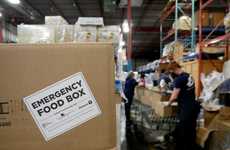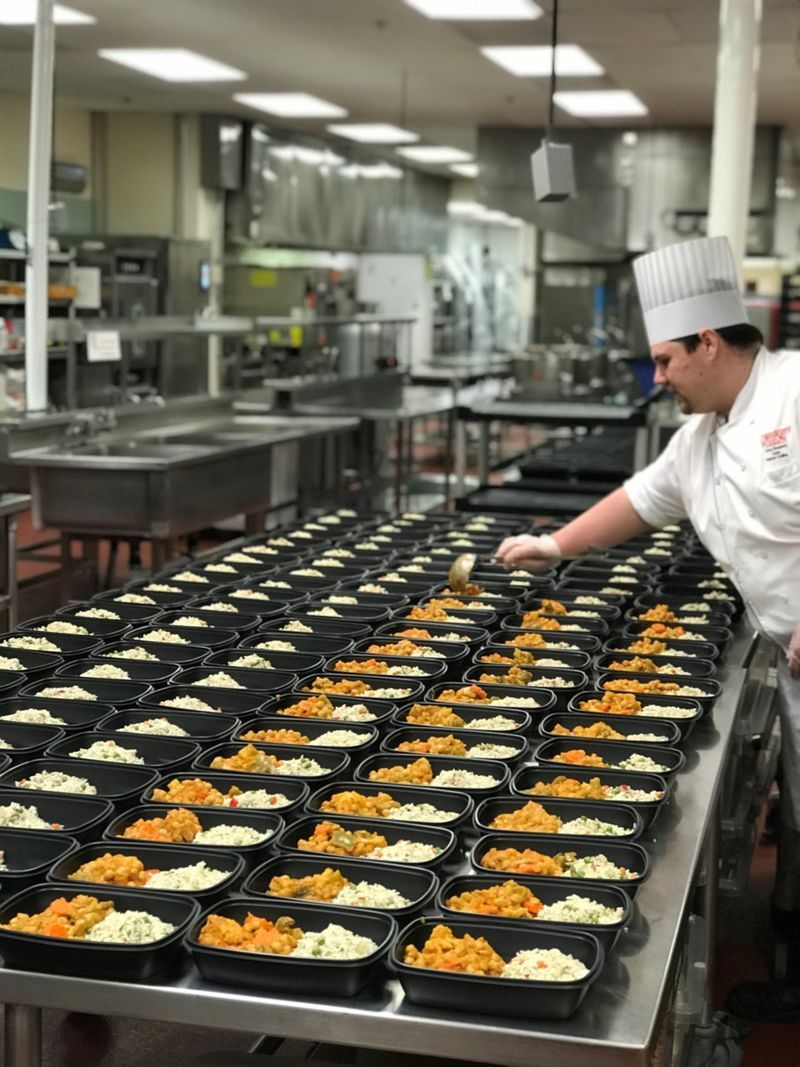
The SEED Emergency Food Program is Aiming to Provide 50,000 Meals a Week
Kalin Ned — May 21, 2020 — Social Good
References: theseedguelph & guelphtoday
Emergency food programs are incredibly important as the COVID-19 pandemic unfolds as the outbreak has aggravated food insecurity on a global scale. Proof of this comes from The SEED, which is an organization at Guelph Community Health Center. While prior to the pandemic, the not-for-profit provided meals for more than 300 vulnerable families, it has been reported that "that number has spiked dramatically."
With an estimate that over 4,000 local homes are experiencing food insecurity during the health crisis, SEED has launched a specialized emergency food program that relies on volunteers, food and service donations. The Hospitality Services at the University of Guelph, for example, "has started preparing meals for the project."
The goal is to meet a demand for meals, estimated to be 50,000 per week.
Image Credit: The SEED
With an estimate that over 4,000 local homes are experiencing food insecurity during the health crisis, SEED has launched a specialized emergency food program that relies on volunteers, food and service donations. The Hospitality Services at the University of Guelph, for example, "has started preparing meals for the project."
The goal is to meet a demand for meals, estimated to be 50,000 per week.
Image Credit: The SEED
Trend Themes
1. Emergency Food Programs - Disruptive Innovation Opportunity: Develop advanced food delivery systems and technologies to efficiently distribute and deliver meals to those in need during emergencies.
2. Food Insecurity - Disruptive Innovation Opportunity: Create innovative and sustainable solutions that address food insecurity on a global scale, focusing on vulnerable populations.
3. Volunteer-based Initiatives - Disruptive Innovation Opportunity: Build online platforms and technologies that connect individuals and organizations to volunteer opportunities, enabling efficient coordination and delivery of services.
Industry Implications
1. Food Delivery - Disruptive Innovation Opportunity: Create a disruptive food delivery service that caters specifically to emergency and crisis situations, providing quick and efficient distribution of meals.
2. Sustainable Agriculture - Disruptive Innovation Opportunity: Develop sustainable farming methods and technologies that can produce sufficient food to alleviate food insecurity in communities affected by emergencies.
3. Non-profit and Community Organizations - Disruptive Innovation Opportunity: Leverage technology and data analytics to optimize the operations and outreach of non-profit and community organizations focused on providing emergency food assistance.
1.4
Score
Popularity
Activity
Freshness























